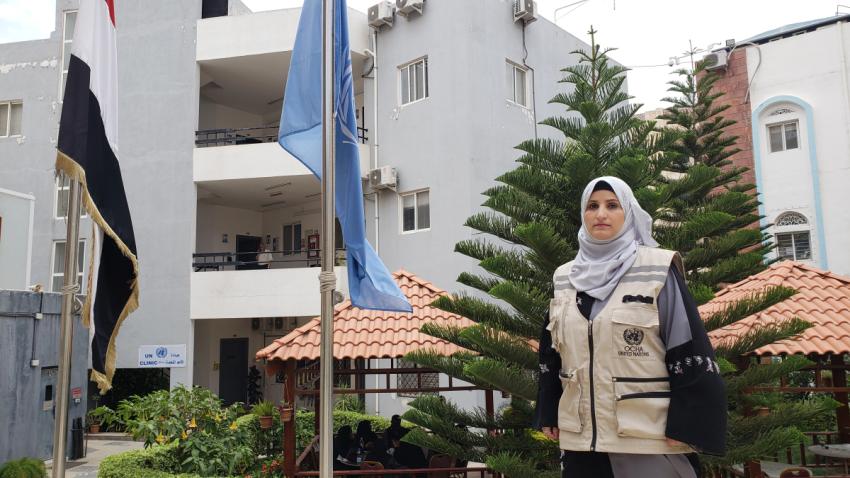Instances of abuse and exploitation perpetrated for sex by aid workers continue to occur, and they are as appalling as they are frequent.
This is why the work of PSEA focal points of the Office for the Coordination of Humanitarian Affairs (OCHA) is key to OCHA’s ability to make protection from sexual exploitation and abuse central (PSEA) to humanitarian response work.
In this interview, Saba Gawbah, talks about her role as the PSEA focal point for OCHA Yemen and the challenges she encounters in her work.
What does your role as PSEA Focal Point entail?
I was nominated as a PSEA Focal Point in 2016, shortly after joining OCHA Yemen and becoming the first and only female staff member in the field at the time. It was a challenging but empowering experience.
I was one of the co-founders of the inter-agency PSEA network in Yemen. In this role, I led the development and implementation of our PSEA action plan, ensuring it reached all staff—from senior officials to cleaners and security guards.
I’m proud that OCHA Yemen was the first office in the Middle East and North Africa region to establish a comprehensive PSEA action plan.
What are the main challenges in your work?
The biggest challenge is the cultural sensitivity around the topic in Yemen. Discussions about sexual exploitation and abuse are often taboo, and survivors fear stigma, retaliation, or losing access to aid. This makes reporting extremely difficult.
To address this, I use field visits to build trust—especially with women—through focused group discussions in safe spaces. These conversations help raise awareness about their rights and how to report concerns confidentially. Building trust is key in this process.
For me, the key is not looking at preventing sexual exploitation and abuse as a side task but rather embedding it in everything we do.
So, during field missions, I lead awareness sessions, distribute flyers and posters, and engage directly with communities — especially in internally displaced persons (IDP) camps. I emphasize that reports can be made anonymously and that every concern is taken seriously and handled through proper channels.
It is our collective duty to uphold prevention principles and the UN Code of Conduct. Complete your training, sign the pledge, and stay informed. And so is our obligation to report any suspected cases of sexual exploitation and abuse—even if it’s just a rumour—and encourage communities to do the same. Never try to investigate on your own - report through OIOS or through your Head of Office.
Our role is to protect the dignity and safety of the people we serve. This is why the UN has zero tolerance for sexual exploitation and abuse or sexual harassment.
Learn more about the UN response to sexual exploitation and abuse on iSeek.



